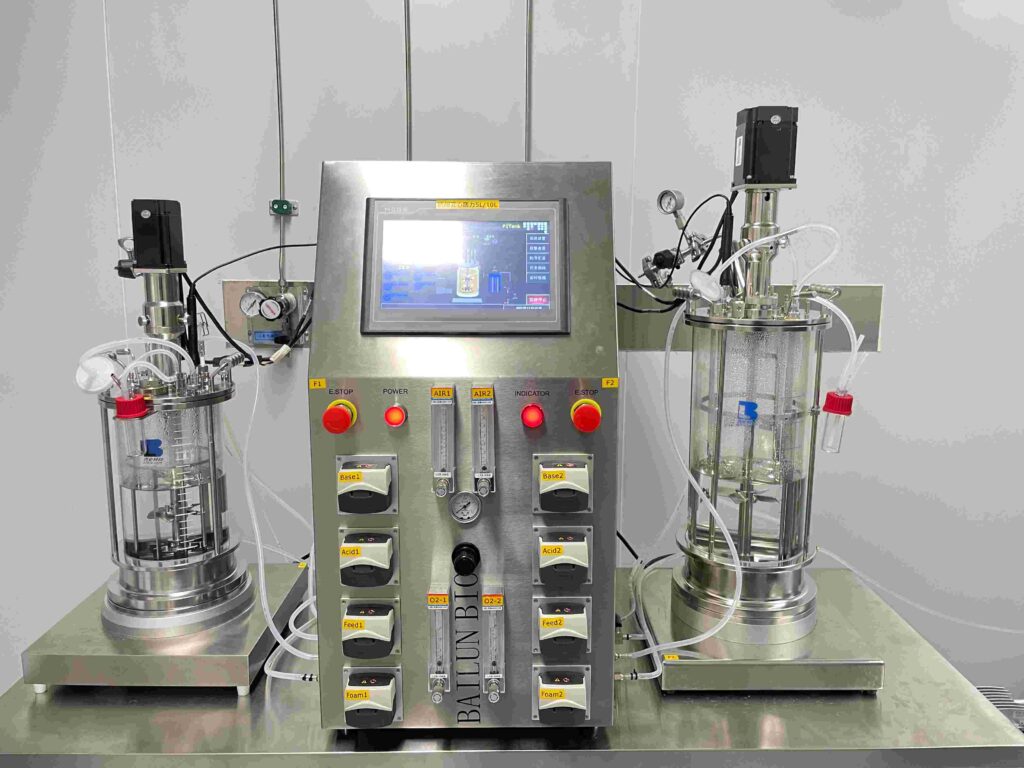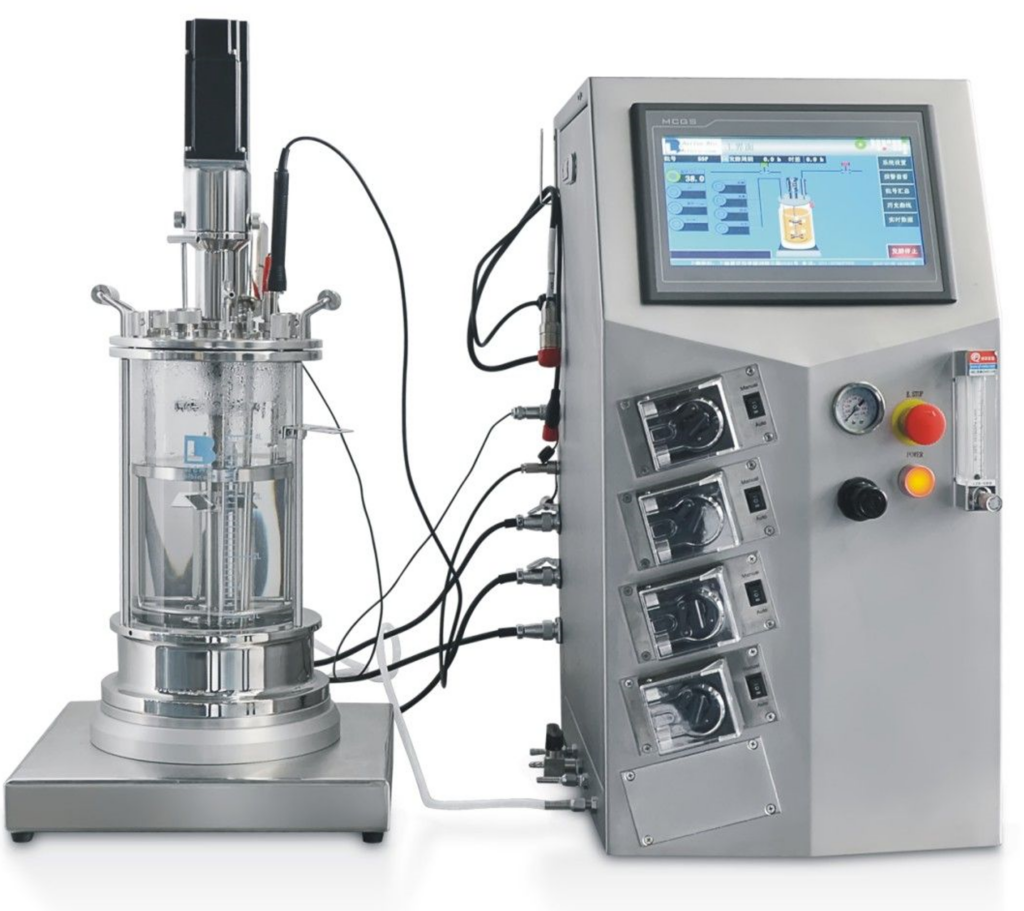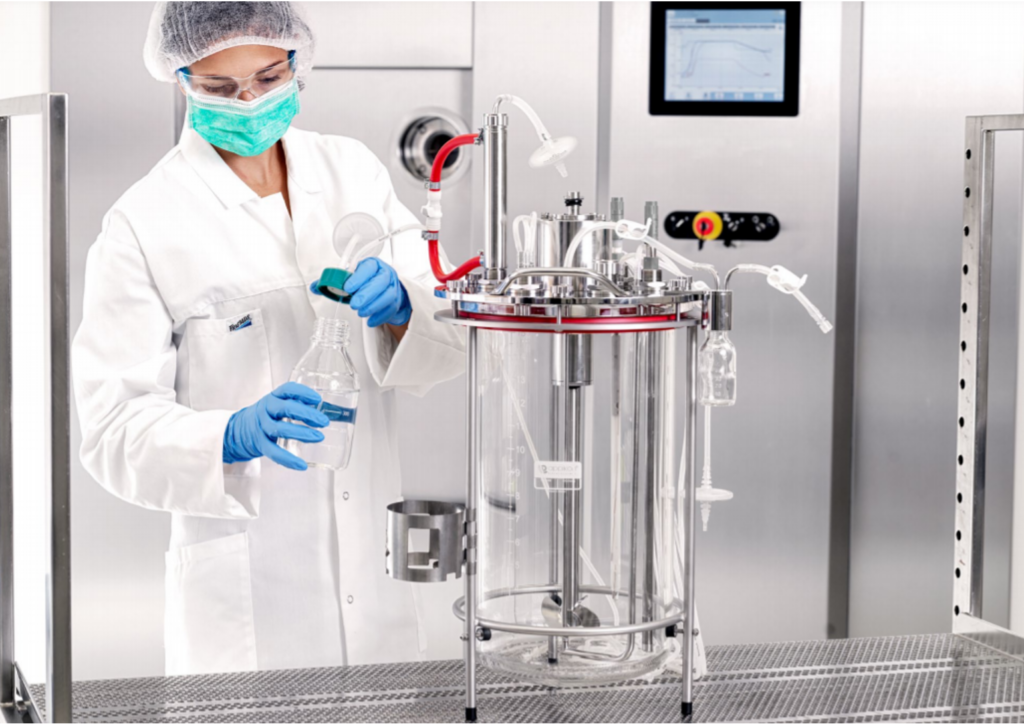Fermenting Glass Bioreactors: Redefining Biotechnology in the Lab
Accounting for great innovation in biotechnology is the glass bioreactor, a versatile tool in the field. However, what makes these bioreactors critical for present-day laboratory and life science organizations unprecedented? Considering the situation whether you’re a researcher designing new pharmaceuticals or an amateur studying fermentation science, the role of glass bioreactors can dramatically redefine your vision of laboratory procedures.

In this article, we will examine the basics of glass bioreactors and show why these tools are crucial in a fermenter lab. We will also consider that, Chemically, these nanomaterials are defined as particles with at least one dimension in the size range between 1 and 100 nanometers. Plus, we’ll answer the most frequently asked questions about their application in biotechnology.

What is a Glass Bioreactor?
A glass bioreactor in particular is a kind of vessel designed to encourage strictly regulated biological activity. These are not like large enclosed bioreactors used in industrial large-scale bioprocessing, but are commonly found in laboratory bioreactors for R&D. They give clear insight into the process and allow scientists to control the conditions.
But what differentiates them? Their material is glass, and for good reason, it is chemically inactive and will not react with the culture medium. For this reason, they are preferred in accurate and delicate research studies.
How Do Glass Bioreactors Work?
The process by which the glass bioreactors operate begins with pre-sterilization, followed by filling with the cultural media to carry out the desired development, and then incubation in an appropriate environment that could be warm or cold depending on the requirement of the growth surface.
Have you ever wondered how the bioreactor helps in the act of fermentation? It is not just a container, as it may be first thought. It’s a sophisticated system equipped with:
- Temperature Control: References a suitable environment in terms of physical and chemical nature that is required and supports microbial or cellular growth.
- pH Regulation: Retains a specific concentration of reactivity in order to maintain stability within it.
- Agitation Systems: Maintains a uniformity of the culture medium which is necessary in order to obtain a standard result.
They make glass bioreactors important in fermenter lab experiments to gain full control of the biological processes by mimicking the real processes.
Find more information on how such laboratory formations as fermenter labs are transforming biotechnology.

Uses of Glass Bioreactors
What makes them so popular? Their versatility allows them to play a pivotal role in multiple fields:
- Pharmaceutical Research
Altogether they are vital for drug discovery as they are used in the synthesis of antibiotics, testing of vaccines and many more uses. They are very clear and accurate to let every reaction be followed very closely.
- Food and Beverage Industry
Have you ever had a glass of wine or yogurt? It is quite probable that the production process again incorporated a laboratory fermenter trial in a glass bioreactor.
- Environmental Biotechnology
Don’t you know that these bioreactors are used for the investigation of microbial behavior for waste degradation? They assist a researcher in improving the environment for degrading pollutants.
- Education and Training
In learning, simulation makes a difference, especially for young scientists who can attend laboratory bioreactor setups as samples.
Visit Fermenter China for the best quality glass bioreactor as well as other laboratory equipment meeting your needs. Start innovating today!
Why Choose Glass Over Stainless Steel?
When setting up a bioreactor system, you might wonder why not use a stainless-steel vessel. While steel bioreactors dominate industrial applications, glass has its unique advantages in the lab:
- Transparency: You can watch the process without any interference through the help of a graphic interface.
- Cost-Effectiveness: What about using glass bioreactors that are cheaper for carrying out small-scale experiments?
- Inert Nature: Vent risk is rare because there is no potential for chemical compatibility issues between the medium and the vessel.
When using a fermenter lab these features make these bioreactors the best option for small and well-controlled experiments.
How to Use a Glass Bioreactor in a Fermenter Lab
Therefore, let me lay down on the table a glass bioreactor which is in your possession now. How can this be done to optimally gain from it? Follow these steps:
Setup and Calibration
- Make sure that all sensors being used are duly calibrated; these are temperature, pH and dissolved oxygen sensors.
- After that wash the vessel to eliminate any germs.
Prepare the Culture Medium
- Combine the right foods and tend to the change in pH levels as appropriate.
- Ensure that the medium is transferred into the bioreactor in a sterile condition.
Inoculate the Microorganisms
- Add the selected strain or cell culture into the medium.
Monitor and Adjust
- Several of the characteristics to check include pH levels, oxygen levels and temperature.
- Consult the ideal environmental factors to be adjusted for proper growth to occur.
Harvest and Analyze
- Once the reaction is complete transfer the product into another container for further purification.

Common Challenges and Solutions
That means that even the best and the most sophisticated systems have their problems. Here are some common issues and how to address them:
1. Contamination
Problem: Microbes such as bacteria or fungi spoil the culture.
Solution: The glass bioreactor must always be sterilized and all procedures have to be carried out aseptically.
2. pH Fluctuations
Problem: Unstable pH affects growth.
Solution: There should be the use of automated pH sensors with corrective solutions of acids and bases.
3. Oxygen Limitations
Problem: Tissues fail to make adequate supply of oxygen reach cells.
Solution: The agitation speed and aeration rate should be inserted to enhance its efficiency.
Trends for the Development of Glass Bioreactors
The question arises ‘Where does this all-important instrument go from here? ‘Biotechnology is a developing field and as such bioreactors are also adapting to the changes. Future trends include:
- Smart Sensors: Continuous tracking and monitoring using Internet of things-connected machines.
- Miniaturized Bioreactors: Transportable configurations for time investigations.
- Hybrid Models: A synthesis of the advantages of using glass and disposable systems.
Such advancements in glass bioreactor designs have the potential to make available these tools that would enable the advancement of research.
Conclusion
The glass bioreactor is not just a container it also offers a chance and a key to advancement in biotechnology. Groundbreaking in any industry from fermenter lab work to scientific breakthroughs, these bioreactors cannot be beaten for precision and control.
Want to know more about how these laboratory establishments like the laboratory bioreactor are revolutionizing things? Go see BaiLun Bio’s bioreactors and take your research to a further level.
FAQs
Q1: What is the purpose of a glass bioreactor?
Bacterial, animal, yeast, and plant cells along with their tissues and organs are grown in controlled bioreactors for research, development of drugs and drug effects on fermented goods etc.
Q2: Who has used bioreactors and why are they common in the laboratory today?
They are transparent and do not cost much, neither do they react with other compounds, making them suitable for accurate and small experiments.
Q3: In what ways does the structure of bioreactors deviate from that of industrial bioreactors?
Industrial bioreactors are a large-scale production method, whereas bioreactors are compact with the purpose of managing small-scale research.
